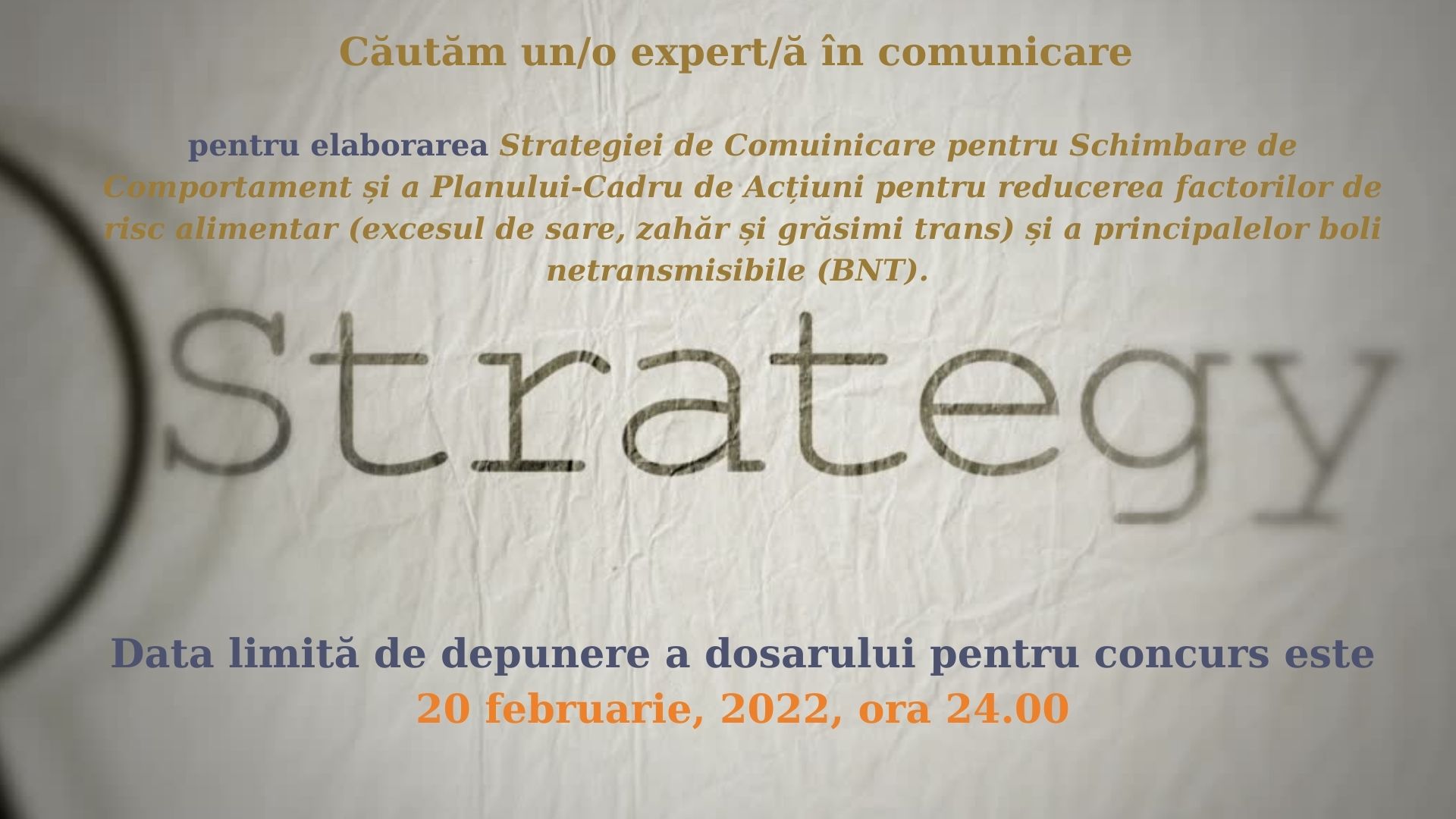
The vision of the “Healthy Life Project to Reduce the Burden of NCDs” is that Moldova achieves its 2030 UHC and health related SDG targets, and that its people enjoy greater health and wellbeing. Following this vision, the goal of the project is to contribute to the improvement of the health status of the Moldovan population, especially in rural areas through the reduction of the burden of NCDs.
Three outcomes are defined to archive this goal:
The Republic of Moldova still ranks among the countries with the highest burden of NCDs, expressed by the high overall morbidity and mortality of the population, which is the highest in the European region. Major noncommunicable diseases (cardiovascular diseases, diabetes, cancer) are responsible for 87% of all deaths. The COVID-19 pandemic has highlighted the importance of NCDs prevention, given that 90% of people who died from this infection suffered from NCDs.
NCDs are associated with the four known risk factors: behavioral, physiological, genetic, unchangeable. Strategies to reduce behavioral risk factors can prevent up to 80% of premature deaths from cardiovascular disease and diabetes and up to 40% from cancer. The estimates made by the Institute for Health Metric Sand Evaluation (IHME) show that the highest burden of disease in the Republic of Moldova is caused by high systolic blood pressure, dietary risks or unhealthy diet and tobacco use, followed by high BMI, alcohol, and higher fasting plasma glucose.
To date the Healthy Life Project in partnership with the National Agency for Public Health (NAPH) and other national partners facilitated the development and supported the running of three Communication Campaigns on nutrition titled "Choose what you eat!". These campaigns addressed the following issues: in 2019 the excessive salt consumption, in 2020 – the excessive consumption of trans fats, and in 2021 – the excessive sugar consumption, and their damage to health, especially its contribution to the emergence and development of NCDs.
The three communication campaigns were of an informative and sensitizing nature and were carried out at national level for the general public. The main communication channels that were emphasized were the national media and social networks. However, as the Healthy Life Project also facilitates health promotion activities at community and individual level, it is important that these CCs are also implemented at these levels, involving the relevant local actors (e.g. the health sector, education, industry, HoReCa, trade, etc.).
In this regards, the HLP is looking for the communication expert, with experience in social marketing, to develop a Behavior Change Communication Strategy (BCCS) on reducing dietary risk factors of the main NCDs (salt, sugar and trans-fat) at raion/community level as an extension of the 3 national information campaigns titled "Choose what you eat!", a three year (2022-2024) Action Plan Framework for its implementation, and a training/capacity building component.
General objective:
To develop a Behavior Change Communication Strategy and Action Plan Framework, as well as the contents for a training workshop, on reducing dietary risk factors of the main NCDs (salt, sugar and trans-fat) at raion/community level with the generic "Choose what you eat!". To work in an iterative manner with NAPH (central and decentralized structures), District Public Health Councils, inclusively LPA and other local actors, and the Healthy Life Project.
1.To develop the BCC Strategy titled “Choose what you eat!”, based on the principles of social marketing, to share it with the actors concerned for feedback and then finalise.
2. To develop the Action Plan Framework for the BCC Strategy implementation for years 2022 – 2024 with the following key characteristics (4P):
3.To strengthen the National Agency for Public Health and Territorial Public Health Councils Members capacities on developing the Action Plans based on the BCCS in 8 districts as a component part of the District NCD Prevention Action Plans based on Heath Profiles.
Deliverables:
Timeline and level of effort:
It is anticipated that up to 15 work days will be required for this assignment. The work should be completed by the end of Q1 of 2022.
Required profile:
Interested applicants must submit the following:
The above shall be sent to: info@viatasan.md Deadline for applications: February 20, 2022, 12.00 P.M. Only the selected people will be contacted for the next selection phase, at the interview.
Reporting Arrangements:
The consultants will work closely with the Communication and Health Promotion experts and will report to the local project manager and to the Swiss TPH in Basel.